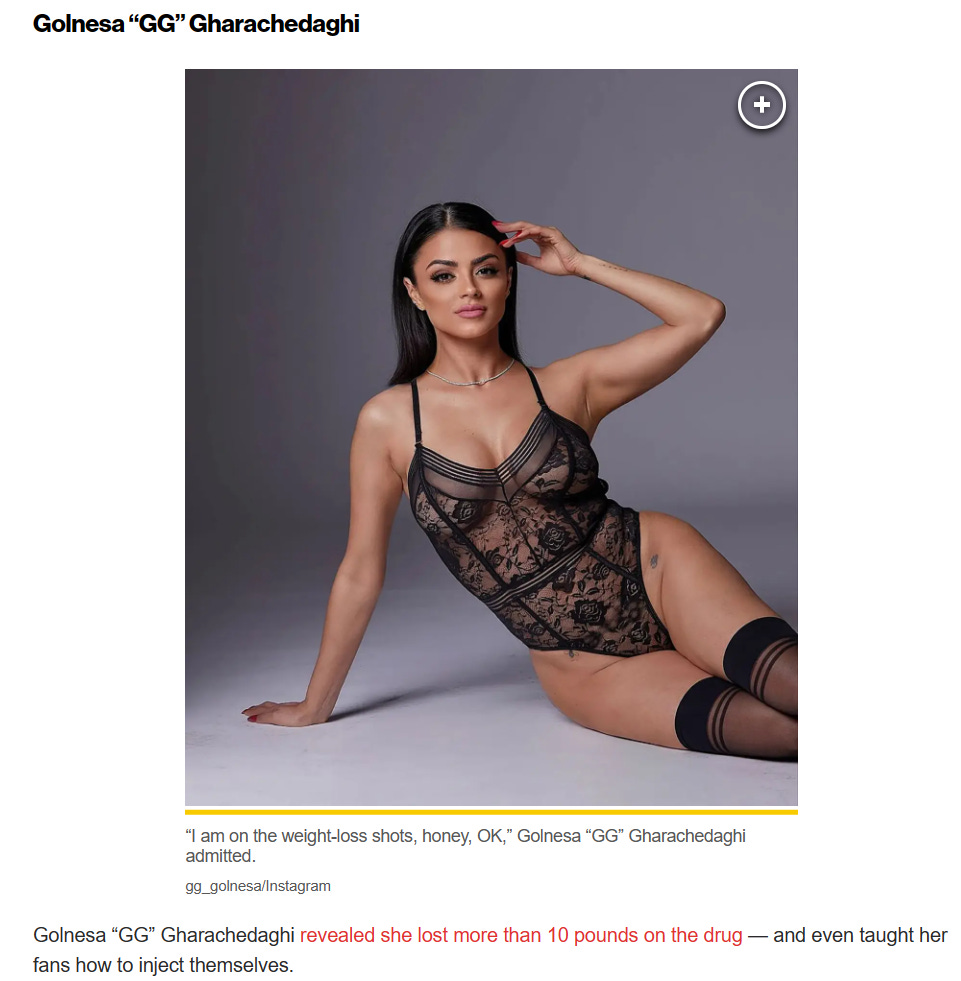There has been a lot of hype about a heart drug that has serendipitously been found to result in weight loss. The drug - under the brand name Ozempic - was developed to reduce the risk of sudden cardiac death in patients with type two diabetes and known heart disease. Ozempic was first targeted as a heart drug for diabetics:
The unexpected impact on weight loss saw the drug become re-targeted:
“OZEMPIC is a glucagon-like peptide 1 (GLP-1) receptor agonist indicated as an adjunct to diet and exercise to improve glycemic control in adults with type 2 diabetes mellitus”
The drug immediately became a fad.
The percentage of obese Americans approximates 42% or some 130 million people. Some studies estimate obesity adds $173 billion to annual health care costs in United States or $1,800 per obese person. U.S. annual health care spending was an estimated $4.2 trillion in 2021. If the data on obesity are correct, obesity comprises about 4% of U.S. health care costs - large certainly but hardly a “crisis”.
Hollywood stars, weight loss companies and the media have all piled on promoting Ozempic and its ilk as a solution to a national crisis. There is no doubt that Ozempic or its rivals will bring about weight reduction if injected regularly. Is it a heaven-sent solution to the troubling problem of obesity or is it just another fad with a dark side?
The FDA study approving Ozempic comprised a population of 4,807 men and women (the study seems to have eschewed the other genders the leftists in American claim to exist) which, while statistically significant is nonetheless small compared to the target population of 130 million. Some unpleasant side affects were noted:
Pancreatitis in 0.3 cases per 100 patient years. If 130 million patients relied on Ozempic or its equivalent to control obesity for a decade, there would be an estimated 3.9 million cases of pancreatitis. Most cases of pancreatitis resolve quickly without medical intervention but one in five cases can be life threatening. One price for making Ozempic-like drugs a national solution to obesity could be a few million premature deaths. Of course, some claim obesity also leads to premature deaths.
Diabetic retinopathy is a side effect for 3% of users of semaglutides. While not particularly life-threatening, diabetic retinopathy leads to vision problems and can cause blindness. The 3% figure is a simple percentage of the study population for the period of the study, not a lifetime cumulative figure. 130 million people for a decade of use of this drug could create 39 million people with vision problems, some of them blinded.
Thyroid C-cell tumours - Studies on mice and rats found there was a risk of cancer from Ozempic and could not rule out the risk in humans.
The problem with “fad” drugs is that society is excited about their benefits and blind to their risks, while their producers are eager to cash in. The best weight control is diet and exercise, not some “wonder drug” that makes it easy to lose weight and comes with needless risks. Most people taking Ozempic suffer diarrhea, nausea, abdominal cramps and a host of unpleasant effects that are not present when you avoid drugs and simply go for a walk or bike a few miles every day.
Most studies find that obese people suffer shorter lives but a study in Scientific American found that overweight people (but not obese) lived longer. A lot depends on the definition of “obese”. Underweight people have higher risks of death just as obese people do.
People with a body mass index (BMI) in the 20 to 35 range enjoy normal lives without excess risk of premature death. A six foot man (1.89 meters) with a weight of 230 pounds (105 Kg) has a BMI of about 30 and should enjoy little risk of premature death arising from being a bit on the chubby side. He might look better on Malibu beach at 175 pounds but not that much better if you prefer normal to ripped.
The throng of already skinny Hollywood stars touting Ozempic so they can fit into the latest Vera Wang dress for a night on the red carpet sets a poor example for young women. Some clearly didn’t need to lose weight but were happy to take the risk of side effects anyway.
Theese celebrities aren’t great role models for teenagers with negative body images. The Ozempic fad does them no favors and has a non-zero risk of doing harm.







Lizzo comes to mind, but becoming almost a source of pride to be a fat slop :(
No fat shaming please :), not easy to be slim for most, as a boy the massively overweight kid in my grade 6 class that we all called fatty, wouldnt be noticed walking on the street today, likely thought average or even on the thinner side.. Its not easy, Im very careful with eating, know lots about diets, proper nutrition and im likely more active that 98% of my age group, but I still carry 15+ extra pounds.
Like Rogaine that was found to grow hair this is similar, and the money pours in. MSM will never say a negative word since so much of their ad revenue comes from drug companies, prior to covid, Pfizer had a $3.5 Billion annual marketing budget in the US, with covid, who can even guess, but 3-10x higher IMO... Is it safe? How well does it work? Who knows, I do recall Chantix, stop smoking drug lots of questions, but many other drugs useless or worst. Dont expect the media to say anything negative...